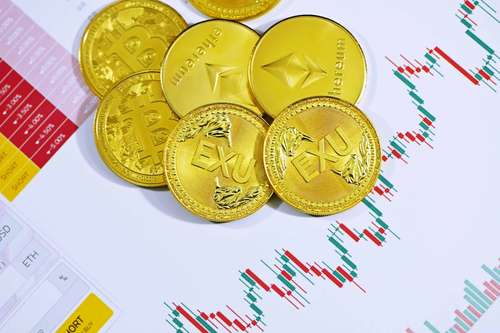The Apex cryptocurrency Bitcoin was initially created to disrupt the traditional financial ecosystem. However, things got better with the creation of Ethereum, as it brought a lot of applications to the blockchain. Ethereum network allows developers to create decentralized applications that will help make payments much more seamless on the blockchain.
Unlike the traditional financial ecosystem, decentralized finance (DeFi) offers much more than just making transactions. With DeFi, users can easily make transactions at a much-reduced cost, faster, and without needing the scrutiny of a third party. But this can't be possible without DeFi protocols.
In this article, you will learn the meaning of decentralized finance, DeFi protocols, and examples of DeFi protocols.
What is Decentralized Finance (DeFi)?

Decentralized finance is a financial technology that powers the transition from the old transaction method to peer-to-peer financing.
DeFi is based on blockchain technology, and it has helped eliminate the need for third-party as in the case of centralized finance. Two parties can easily carry out a transaction between them without a third-party having something to do with it.
When it comes to decentralized finance, the bank and other centralized institutions don't have control over the funds, financial services, and products. With the increasing demand for DeFi products and services, it has grown into a massive financial industry with many integrated protocols.
Understanding DeFi Protocols
With the increase in demand for DeFi, more financial instruments needed to be introduced; hence, the need for more DeFi protocols. With the DeFi industry becoming a multi-dollar industry, more DeFi protocols are being created to serve certain needs in the industry.
DeFi protocols are programs designed to solve certain problems created by the traditional financial ecosystem. Issues such as high transaction fees, third-party scrutiny, and lack of security are some of the things that DeFi protocols often address.
Since the demand for DeFi services is high, more of the world population is now leaning toward the services. Despite the existence of several DeFi protocols, one needs to choose the best DeFi protocols in 2023.
5 Key DeFi Protocols Essential For Blockchain Decentralization
Below are some DeFi protocols needed for blockchain technology to guarantee its decentralization.
AAVE
AAVE is so essential that the DeFi protocol list won't be complete without adding its name. It is one of the most popular lending DeFi protocols. It is one of the DeFi protocols that have helped users to borrow cryptocurrencies and repay at certain times.
With AAVE, the security of a decentralized finance platform is guaranteed; but it offers much more than that. AAVE ensures that users who hold their native tokens will receive governance rights. Those users will be allowed to make certain decisions that affect the platform.
Apart from governance rights, AAVE users also stand a chance to earn rewards from staking their cryptocurrencies. These cryptocurrencies are locked away for a certain period, and then the rewards are shared accordingly.
Uniswap
Uniswap is arguably the most popular and largest decentralized exchange. Decentralized exchanges are quite the opposite of centralized exchanges such as Binance or Coinbase. Uniswap makes the DeFi protocols list because of the numerous purposes of offers within the DeFi space and the whole crypto industry.
Their native token is UNI, and users can earn huge rewards when they provide liquidity for certain polls. Since it's a decentralized exchange, Uniswap also allows its users to store cryptocurrencies in their wallets without the interference of a third party.
Since it falls into the DeFi product category, it uses smart contracts to facilitate trades within its decentralized exchange.
yEarn
yEarn has to be among the best DeFi protocols in 2023 because of its purpose within the DeFi space. The major function which yEarn performs for users is yield farming which allows users to earn many rewards. It uses automated liquidity aggregators to make yield farming available for those who want to use it.
The native token of yEarn is known as YFI and serves a major purpose in governance. It allows the holders to contribute whenever the developers make a major decision. The YFI token is also used as a means of rewarding users who stake the token.
Maker DAO
Maker DAO is one of the biggest DeFi protocols regarding users and worth. As of mid-2022, the TVL of this DeFi protocol was over $7.5 billion. This is huge, as it would take quite a while for many DeFi protocols to reach such a milestone. This protocol's major function is allowing users to lend and borrow cryptocurrencies at a much-reduced cost and transaction time.
For users to earn from the protocol, they can lock their crypto assets for a certain period and earn in a stablecoin called DIA. However, the Maker DAO native token is known as MKR, mainly used by users to exercise their governance/voting rights.
Compound
For many years, Compound has always featured in the DeFi protocols list. This is mainly because of their unwavering quality of service and the options they provide for users. The protocol was used in creating a platform where users can borrow or lend assets to earn certain rewards.
This DeFi protocol has a native token that is only used for governance/voting purposes and for rewarding users for their participation. The major user participation within the compound ecosystem is the provision of liquidity for lending. This means that users can provide assets they are not using for the moment so that the platform can use them to lend funds. At the end of everything, users who are involved in the provision of liquidity are rewarded.




